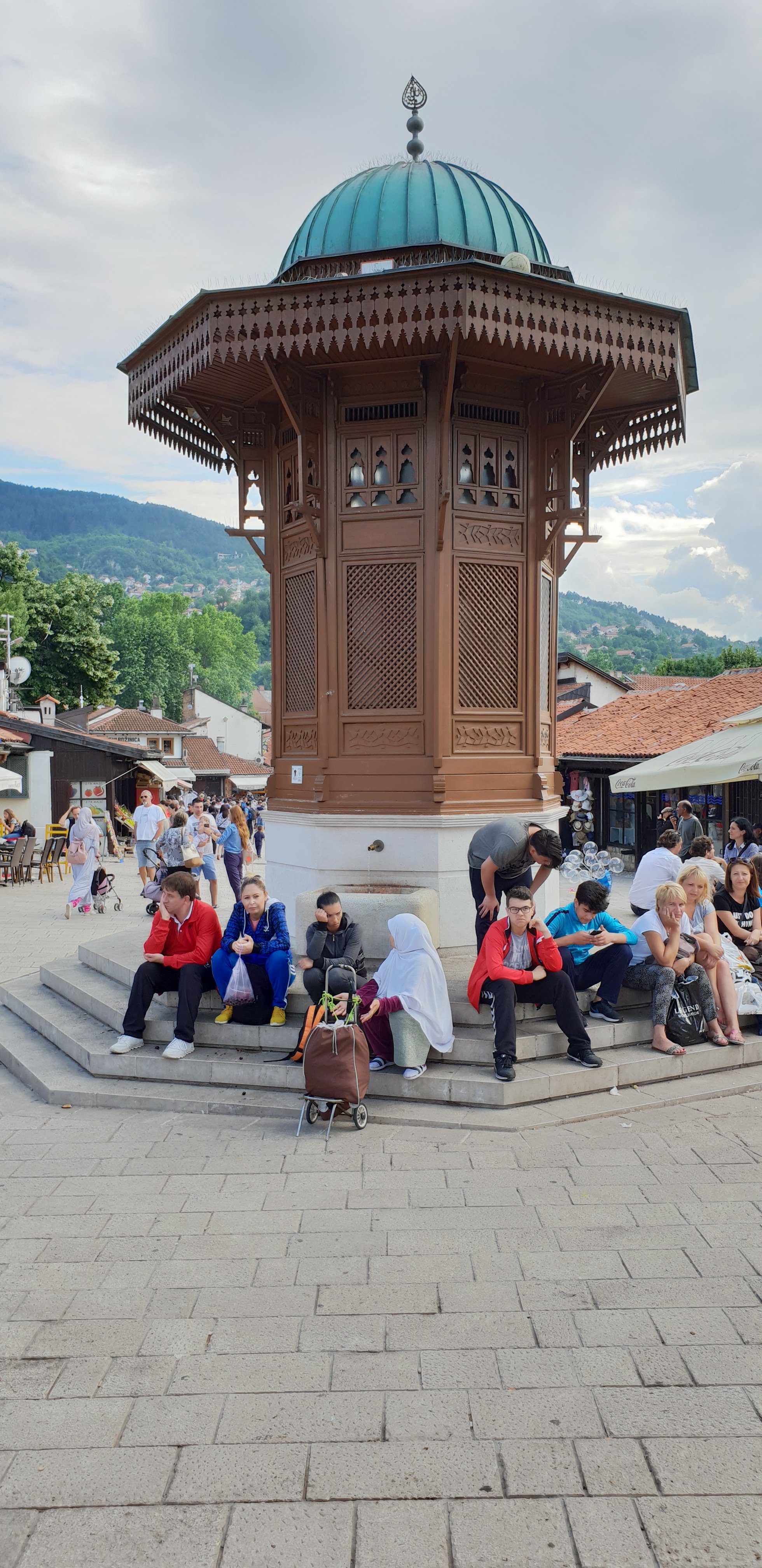
At my hotel the very nice receptionist asked, in very polite, formal English about my day. I told her what I had seen, and she inquired about a number of sights I had missed. What about City Hall? The cable car? She is very surprised I had not seen the cable car. The Sebilj? What is the Sebilj? She is surprised. The Sebilj is, how do you say? Our Big Ben. You know Big Ben? Yes, I say, it’s a big clock. Yes, she says, but how do you say? The London Eye. It is a symbol of the city. The Sebilj is a symbol of our city. Oh, I am now curious. What is it? It is, the Turks left it. The Turks were here, and they left it with us. It is a symbol of our city.
It turns out I had walked past the Sebilj last night. It’s a very nice fountain. On the way to it this evening I stopped to look at a display of friendship bracelets a man my age was selling. Advertised were bracelets reading „Dortmund“ and „AC Milan“ and other football teams, as well as people’s names. What was it like to be a middle-aged man in Sarajevo selling friendship bracelets to young tourists? He comes over. How do you decide what to put on the bracelets? I ask. Yes, he says, pulling out a ballpoint pen and paper, what is your name? No, I say, how do you decide what to put on the bracelets? He calls over his colleague, an intelligent looking 30-something woman with covered head. She will translate for you, he says. I then am fortunate to talk with an English teacher who, there not being enough jobs for English teachers, is selling carpets and clothing to tourists. We relate: I tell her I am a history teacher who works with computers to get paid. I tell her at my hotel there is a woman studying Economics and a woman who studied Biology. They work at the hotel. She nods. We all know this story. I tell her tomorrow I am going to Srebrenica, trying and again failing to pronounce it as the receptionist patiently had. We trade pronunciations. She smiles. We talk about the war. I tell her of my inability to get across to my coworkers that the people they saw getting shot on tv were getting shot right now, in Europe, not in a television studio, not fifty years ago. She nods. Yes, she says, shortly after the war lazy people came to Sarajevo to, she didn’t know, see what happened? She said, contemptuously, they were shocked to find out Sarajevans had washing machines, had electricity. She said they apparently thought they were all, she almost spat the words, savages killing each other over sheep. Yes, I said, this was happening in Europe. Yes, she said, it is something for the United States and for Europe to be deeply ashamed about, that they let this happen. Yes, I say. What can we do now? Teach it, she says. Teach what happened, teach about it so that it never happens again. I agree. She is right, of course. She nods towards the shop. Yes, I say, you need to get back to work. She smiles and goes. I am thinking of the ghastly plastic cubicles of San Francisco and Silicon Valley, and of provincial people glued to screens. She is right, but I don’t know how to do what she asks.